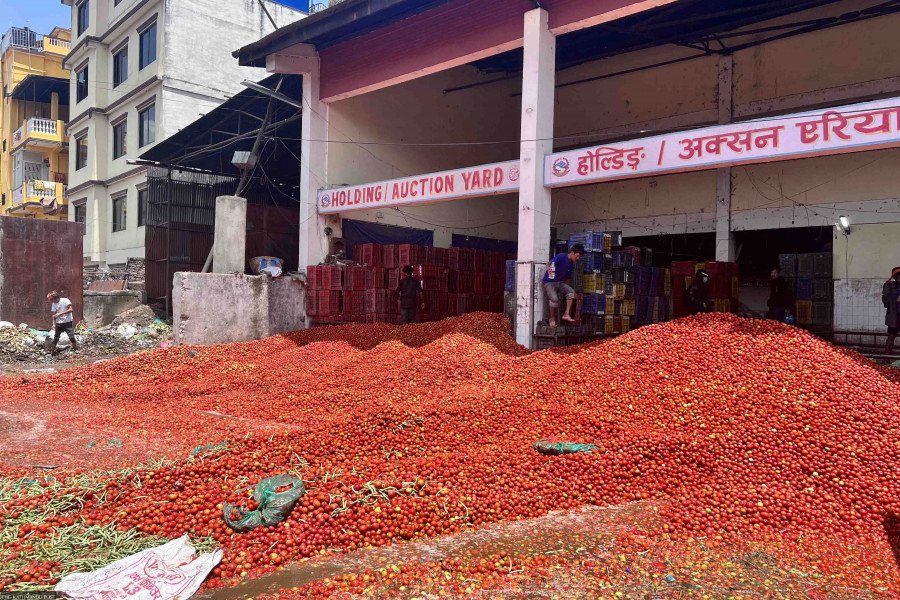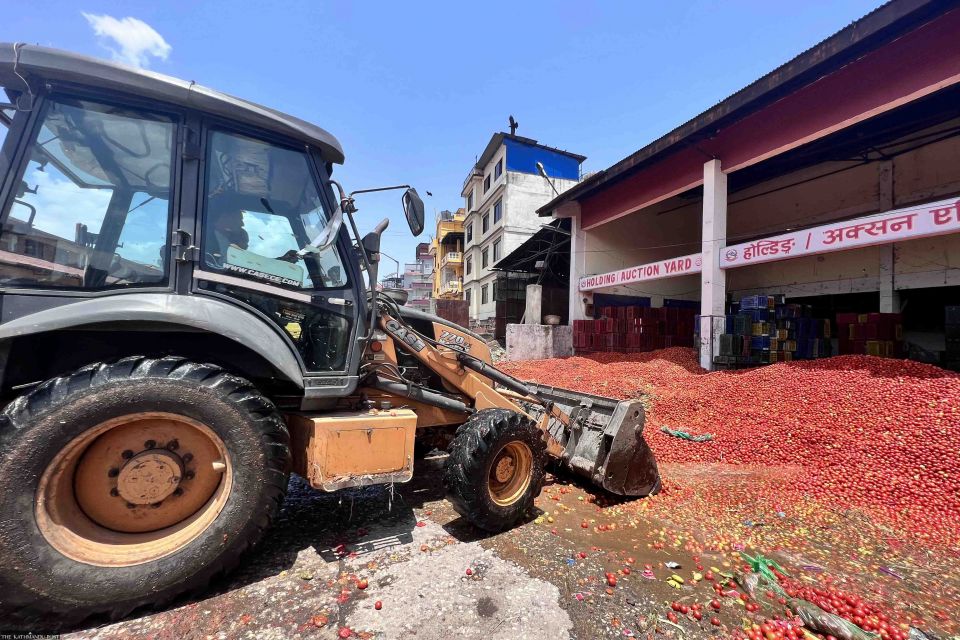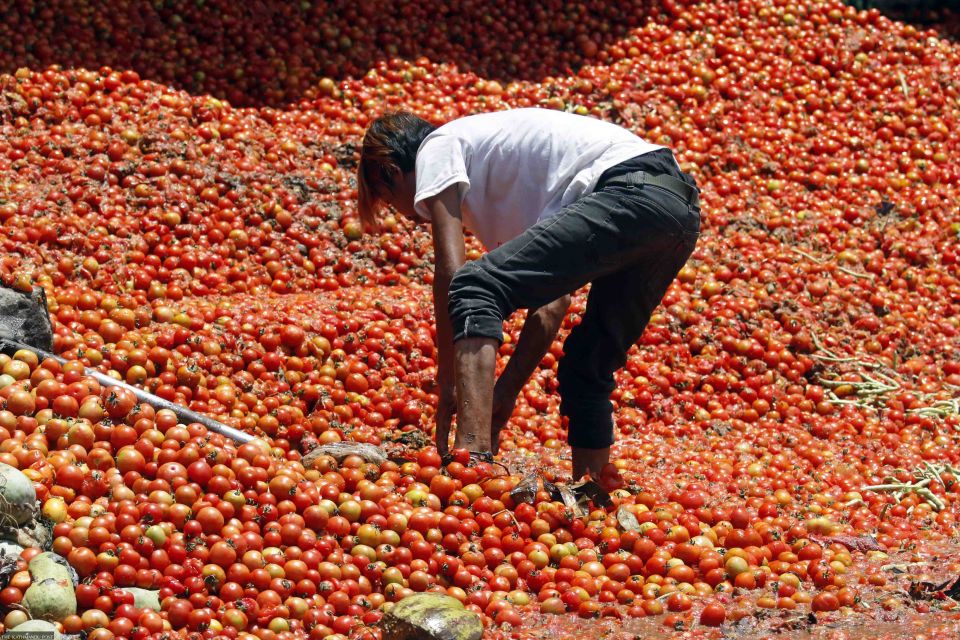Sunday’s tomato spectacle shows that cartels seek to charge high prices in the name of farmers, experts said.

Farmer Lok Bahadur Ale of Sindhuli put his sweet orange harvest in a cold store in November when the market price was Rs50 to Rs60 per kg. Four months later when the off season started, he brought his fruits out of the refrigerated warehouse and sold them for double that.
The fruit farmer from Golanjor Rural Municipality-4 has been laughing all the way from the cold store to the bank.
Ale and his pals from the district are making good use of mini cold storage facilities by stockpiling their farm products when prices are low and selling them when prices are high. The strategy has allowed them to make good profits.
But it appears Nepali tomato farmers are yet to be similarly enlightened. On Sunday, they dumped truckloads of their produce on the road outside the Kalimati Fruit and Vegetable Market to vent their anger at the low prices they were getting.
Photos and videos of the mounds of red vegetables on the road in front of the country's largest produce market duly appeared on social media. The city's bulldozers later scooped up the tomatoes and cleared the road.
As per Kalimati vegetable market sources, farmers had thrown around 90 tonnes of tomatoes on the street.
The tomato growers said they were forced to dump their produce because they were not able to get a fair price, and there was no way they could compete with Indian tomatoes flooding the market.

A few months ago too, farmers had unloaded piles of tomatoes and other vegetables on the road to pressure the government to stop vegetable imports from India.
Experts say market price is not the problem. According to them, the problem is lack of cold stores to keep the tomatoes or factories to make ketchup and other products.
“Due to lack of infrastructure to store tomatoes and other vegetables, farmers are compelled to throw away their produce,” said economist Achyut Wagle. “Farmers can’t sell their vegetables during the off season because there are no cold storage facilities.”
A week ago, the wholesale price of tomato big (Nepali) was Rs55 per kg and tomato big (Indian) was priced at Rs55 per kg.
On Sunday, tomato big (Indian) was selling for Rs45 kg. The price of the Nepali product had not been updated on the Kalimati market's website as of Sunday afternoon.
The price of tomato big (Nepali) had plummeted to Rs35 per kg on Friday, prompting farmers to throw their produce in protest.
Experts say throwing vegetables on the road or banning imports will not solve their problem as prices fluctuate with demand and supply.
Binay Shrestha, information officer of the Kalimati Fruits and Vegetable Market Development Board, said it took hours to remove the tomatoes using bulldozers.
“Farmers were frustrated. A bumper harvest caused prices to plunge. The proliferation of commercial tunnel farming in Kathmandu Valley and adjoining districts led to overproduction,” said Shrestha.
Officials at the Kalimati vegetable market said they had not received any shipment of Indian tomatoes for a few weeks.
The import of big tomatoes, which are used for salads, is not large. The big tomatoes are mainly imported by hotels and restaurants.
“The import of big tomatoes from India will not affect the Nepali market,” said Shrestha.

According to the board, 60-70 tonnes of tomatoes arrive at the Kalimati market daily. They are produced in tunnel farms.
Consumer rights activists say that throwing vegetables on the road is not good because there are many options to add value to them.
“Throwing tomatoes on the road because of low prices is against market ethics,” said Madhav Timilsina, president of the Consumer Rights Investigation Forum.
“Consumers have a right to buy goods which are affordable regardless of whether they are produced in India or Nepal. It’s the choice of consumers.”
Sunday’s tomato spectacle shows that cartels seek to charge high prices in the name of farmers even when the market is awash with fresh harvests, experts said.
“We have been paying high prices when the production drops or during the off season. The market performs as per the supply and demand principle, and there is no reason for farmers to get angry.”
For years, farmers have been complaining that they are being pushed out by cheaper Indian products. It started with the milk holiday. The government then banned the import of milk. Rights activists say that milk became expensive as a result.
“Now, farmers are throwing vegetables on the road. It’s market anarchy,” said Timilsina, who is also a lawyer.
He said that the local government should support farmers by setting up storage plants and training them to make other products which are usable during the off season.
“In Sunday’s case, it seems it was middlemen throwing the tomatoes and not farmers,” he added.












